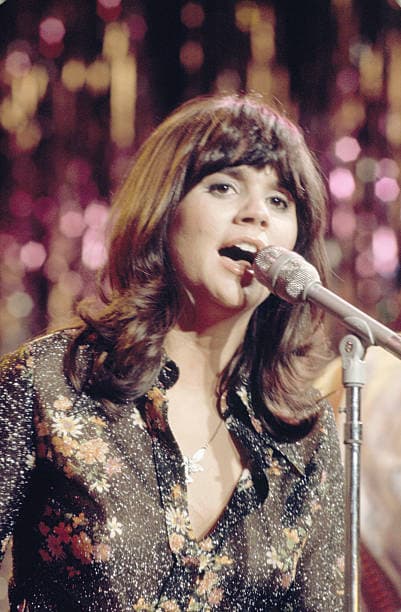
It Doesn’t Matter Anymore: Linda Ronstadt’s Crystal Clear Heartbreak
There are voices that simply inhabit a song, finding its emotional core and presenting it with such honesty and beauty that it feels definitive. Linda Ronstadt possessed such a voice, and her rendition of “It Doesn’t Matter Anymore” stands as a testament to her unparalleled interpretive gifts. Included on her landmark 1974 album, Heart Like a Wheel, and released as the B-side to her smash hit cover of “When Will I Be Loved” in the spring of 1975, Ronstadt’s take on this poignant ballad resonated deeply. It became a significant hit in its own right, charting impressively across Pop (#47), Adult Contemporary (#20), and even Country (#5) formats, showcasing her remarkable crossover appeal. But the song carried a weight far beyond the charts; it was a beautiful reimagining of a tune forever linked to the tragic legacy of Buddy Holly.
The story of “It Doesn’t Matter Anymore” begins with incredible poignancy. The song was penned specifically for Buddy Holly by a young Paul Anka. Holly recorded it in New York City in October 1958, featuring orchestral backing arranged by Dick Jacobs – a slightly different sound for him. Tragically, the single was released in January 1959, less than a month before Holly perished in the devastating plane crash on February 3rd, “The Day the Music Died.” It became a posthumous hit, climbing to #13 in the US and reaching #1 in the UK, a bittersweet final chart triumph. Paul Anka, deeply affected, famously donated his composer royalties to Holly’s widow.
Fast forward to the mid-1970s. Linda Ronstadt, collaborating with producer Peter Asher, was hitting her stride, transitioning from a respected folk-rock singer to a bona fide superstar. Their partnership, beginning significantly with Heart Like a Wheel, was magical. Asher crafted impeccable arrangements – clean, supportive, yet rich – that allowed Ronstadt’s extraordinary voice to shine. The album was a masterclass in song selection, blending rock & roll standards, contemporary gems, and country classics. Choosing to cover “It Doesn’t Matter Anymore” fit perfectly within this framework. Ronstadt had an uncanny ability to find the universal truth in songs from any era or genre, and her take on the Holly classic felt both respectful and revelatory. Her version, often noted for its deceptively simple arrangement, allowed the pure emotion of the lyrics and the crystalline quality of her voice to take center stage.
The meaning of the song is a study in resigned heartbreak. It’s the sound of someone reaching the end of their emotional tether after a breakup: “There’s no use in me crying / I’ve done everything now / And now I’m sick of trying.” It’s a declaration of letting go, a painful acceptance that the fight is over. While Buddy Holly‘s original carries a youthful vulnerability, forever shaded by the tragedy that followed its release, Linda Ronstadt‘s interpretation offers a different kind of depth. Her voice, a peerless instrument of power and nuance, conveys both the profound sadness of the lyrics and an undercurrent of hard-won strength. When Ronstadt sings “It doesn’t matter anymore,” you feel the weight of the tears shed, the nights wasted, but also the weary resolve of someone who has finally, truly decided to move on, even if the ache remains.
Listening now, on April 8, 2025, decades after it graced the airwaves, Linda Ronstadt‘s “It Doesn’t Matter Anymore” still possesses that breathtaking clarity. It’s a perfect blend of exquisite singing, timeless songwriting, and poignant history – a shining example of how a great interpreter can honor the past while creating something enduringly beautiful in the present.